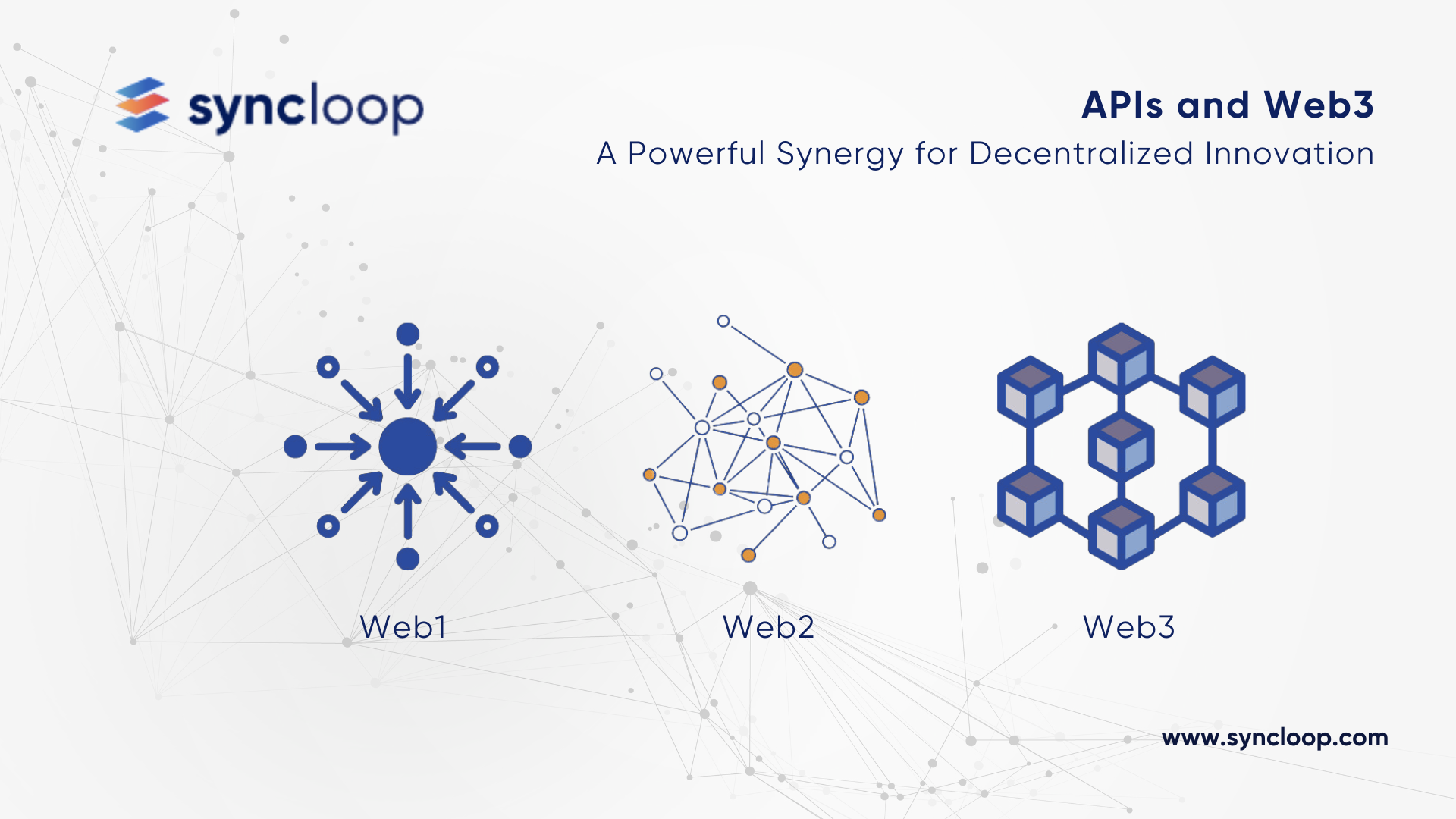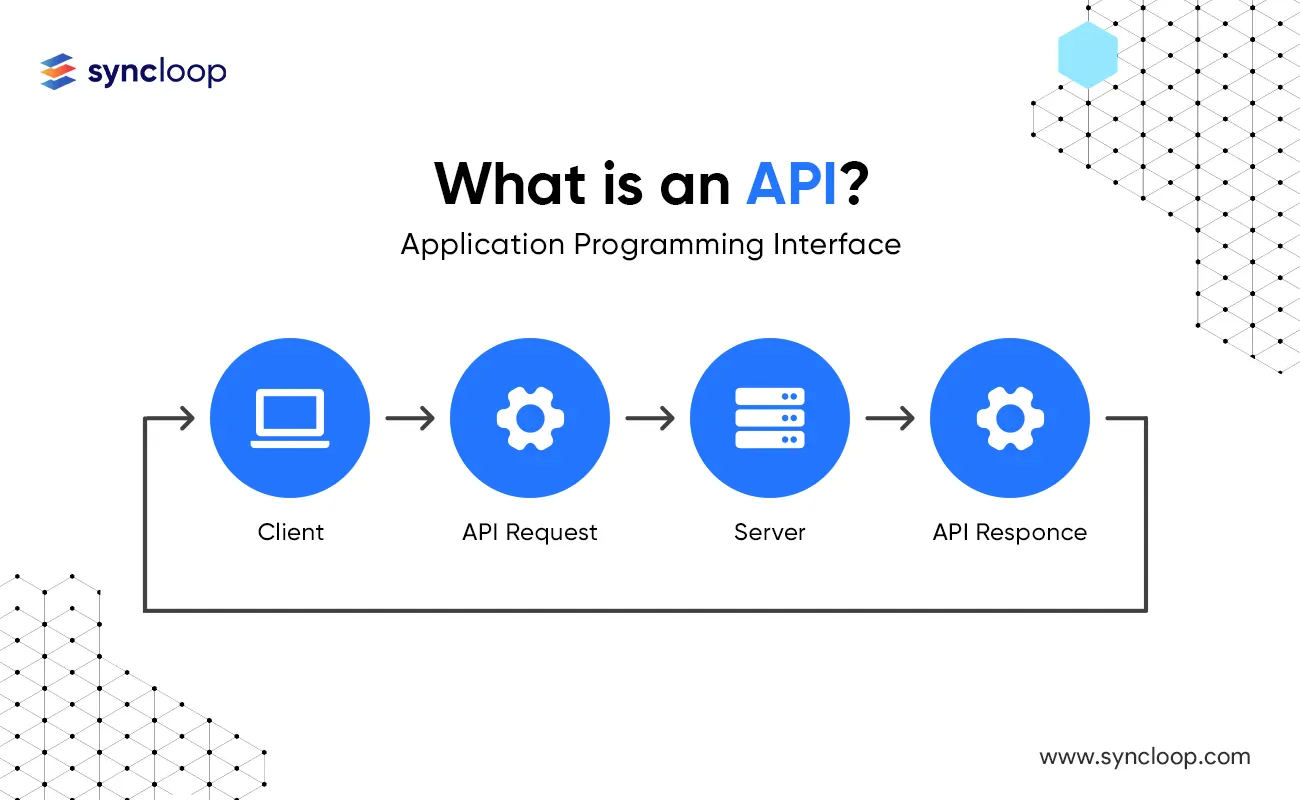API and Web3: A Powerful Synergy
Posted by: Deepak | September 04, 2024

Categories: API Web3 integration, decentralized applications, blockchain APIs
The intersection of APIs (Application Programming Interfaces) and Web3 technologies, including blockchain and decentralized finance (DeFi), is revolutionizing various industries. This blog explores the synergistic relationship between APIs and Web3, highlighting their benefits, use cases, and technical considerations.
Understanding the Synergy Between APIs and Web3
APIs and Web3 complement each other in several ways:
- Data Access and Interoperability: APIs provide a standardized way to access and exchange data on the blockchain, facilitating interoperability between different applications and services.
- Decentralized Applications (DApps): APIs enable the development of DApps that interact with smart contracts and blockchain networks, offering decentralized solutions for various use cases.
- Tokenization and Digital Assets: APIs can be used to create and manage digital assets on the blockchain, such as tokens, NFTs, and other digital collectibles.
- Financial Services: DeFi platforms leverage APIs to provide decentralized financial services like lending, borrowing, and trading, bypassing traditional intermediaries.
Benefits of Integrating APIs with Web3
- Enhanced Security and Transparency: Blockchain technology provides a transparent and immutable ledger, ensuring data security and reducing the risk of fraud.
- Decentralization and Trust: By leveraging blockchain, APIs can facilitate decentralized applications and foster trust among participants in a network.
- New Business Models: APIs and Web3 can enable innovative business models, such as tokenized assets, decentralized marketplaces, and peer-to-peer finance.
- Increased Efficiency and Cost Reduction: APIs can streamline processes and reduce intermediaries, leading to increased efficiency and cost savings.
Technical Considerations for API and Web3 Integration
- Blockchain Integration: Choose a suitable blockchain platform (e.g., Ethereum, Solana, Polkadot) based on your specific requirements.
- Smart Contract Development: Develop smart contracts using appropriate programming languages (e.g., Solidity, Rust) to define the rules and logic of your decentralized application.
- API Design: Design APIs that align with your blockchain network's capabilities and data structures.
- Security and Privacy: Implement robust security measures to protect sensitive data and prevent unauthorized access.
- Scalability: Consider scalability challenges when designing APIs for blockchain-based applications, as transaction throughput and network congestion can impact performance.
Use Cases and Examples
- Decentralized Finance (DeFi): APIs can be used to build decentralized lending platforms, exchanges, and other financial applications on blockchain networks.
- Non-Fungible Tokens (NFTs): APIs can facilitate the creation, trading, and management of NFTs on blockchain marketplaces.
- Supply Chain Management: APIs can enable transparent and traceable supply chains by recording data on the blockchain.
- Identity Verification: APIs can be used to verify user identities and credentials on blockchain-based platforms.
Tools and Technologies for API and Web3 Integration
- Blockchain Platforms: Ethereum, Solana, Polkadot, and Hyperledger Fabric are popular choices for building blockchain-based applications.
- Smart Contract Development Tools: Solidity, Rust, and Vyper are commonly used for writing smart contracts.
- API Development Frameworks: Frameworks like Express.js, Flask, and Django can be used to build RESTful APIs for interacting with blockchain networks.
- Web3 Libraries: Libraries like Web3.js, Ethers.js, and Web3.py provide tools for interacting with Ethereum and other blockchain networks from web applications.
- API Gateway Tools: API gateways like Kong, Apigee, and AWS API Gateway can manage and secure API traffic for blockchain-based applications.
Challenges and Considerations
- Complexity: Integrating APIs with blockchain technology can be complex, requiring a deep understanding of both domains.
- Scalability: Blockchain networks may have limitations in terms of scalability and transaction throughput, which can impact API performance.
- Security: Ensuring the security of blockchain-based applications and APIs is crucial to protect sensitive data and prevent attacks.
- Regulatory Landscape: The regulatory landscape for blockchain and cryptocurrencies is constantly evolving, and businesses must stay compliant with relevant laws and regulations.
Conclusion
The intersection of APIs and Web3 offers exciting opportunities for innovation and disruption across various industries. By leveraging APIs to access and interact with blockchain-based applications and services, businesses can unlock new value propositions, enhance security, and create decentralized solutions that empower users and redefine traditional business models.
Back to Blogs

